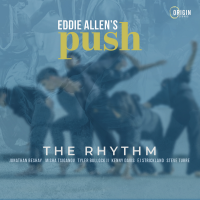Home » Jazz Musicians » Joe Zawinul
Joe Zawinul
It may be a word overused but there isn't truly a more appropriate way to describe keyboardist/composer Joe Zawinul.
Austrian born, Joe Zawinul emigrated to the US in 1959 where he played with Maynard Ferguson and the great Dinah Washington before joining alto saxophonist great Cannonball Adderley in 1961 for nine years. With Adderley, Zawinul wrote several important songs, primarily the slow and funky hit "Mercy, Mercy, Mercy" which reached the top on the Billboard magazine Pop Charts in 1967.
Zawinul then moved on to a brief but fateful encounter and collaboration with Miles Davis, just at the time Miles was moving into the electric arena. It was Zawinul’s tune "In a Silent Way", in fact, which served as the title track of Miles’ first electric foray, and Zawinul had a potent impact on Bitches Brew, as well.
He is one of a bare handful of synthesizer players who actually learned how to play the instrument, to make it an expressive, swinging part of his arsenal. Prior to the invention of the portable synthesizer, Zawinul's example helped bring the Wurlitzer and Fender-Rhodes electric pianos into the jazz mainstream.
After releasing his debut solo album on Atlantic in 1970, Zawinul and saxophonist Wayne Shorter put together what was to become the most important jazz group of the ‘70s and beyond, Weather Report. Drawing on the power and theatricality of rock and R&B, while maintaining allegiance to jazz and the pure spirit of improvisation, they tapped into the so-called "fusion”" movement of that decade while carving out their own unique niche. Bandmembers came and went, including Miroslav Vitous, Alphonso Johnson, Jaco Pastorius, Victor Bailey, Peter Erskine and Omar Hakim, but the band spirit prevailed over the course of 17 albums, including the ground-breaking album Black Market and the massively popular Heavy Weather, with Zawinul's infectious song "Birdland". That song, in versions by Weather Report, Manhattan Transfer and Quincy Jones, won separate Grammy awards in three successive decades, and Weather Report itself won a Grammy for their momentous live album, 8:30.
In 1985, after he and Shorter finally agreed to go in separate musical directions, Zawinul continued to create adventurous new grooves in the group known as Weather Update and then the Zawinul Syndicate, whose albums have included the Grammy-nominated My People in 1996 and the two-CD, Grammy-nominated World Tour in 1998. Other special projects have included an adventurous solo album, Dialects (1986), and work as producer and arranger on Salif Keita’s landmark album, Amen (1991). Meanwhile, as another tributary of his creative life, Zawinul has also pursued classical composition, writing his ambitious "Stories of the Danube" in 1993 and working with renowned classical pianist Friedrich Gulda. His special solo project, Mauthausen released in Europe in 2000, is a memorial for the victims of the Holocaust, and was performed on the site of the Austrian concentration camp it is named after.
Read moreTags
End Of Month Keyboard Special with Chick Corea Trio, Joe Zawinul, Michael Wolff, and More

by David W. Daniels
End of month keyboard special for the last Thursday in Monktober. Includes music from Oscar Peterson, Don Patterson, Kandace Springs, and more. The recent passing of Jack DeJohnette is acknowledged with the final selection of a track from the Bruce Hornsby, Christian McBride, and Jack DeJohnette album Camp Meeting.Playlist Marcus Roberts Trio “Exploration" from Time And Circumstance (Columbia) 00:00 Oscar Peterson “Teenager" from Night Child (Pablo Today) 16:34 Chick Corea Trio “Trinkle Tinkle (Live)" from Trilogy 3 (Candid) ...
Continue ReadingCannonball Adderley: Burnin' In Bordeaux: Live In France 1969

by Stefano Merighi
Altra nuova perla della Elemental Music, e sempre con la produzione di Zev Feldman, “Burnin' in Bordeaux" (doppio CD) celebra il magistero di Julian Cannonball Adderley, un poeta assoluto del sax contralto, e la solidità nonché la brillantezza del suo quintetto di fine anni '60. Adderley, scomparso a soli 46 anni nel 1975, è stato fedele alla sua idea di jazz anche in un periodo in cui le trasformazioni si succedevano in fretta e in cui il grande ...
Continue ReadingThe 29th Annual IAJE Conference: A Jazz Merry-Go-Round

by Jack Bowers
This article was first published on All About Jazz in February 2002. As always, the annual Conference of the International Association for Jazz Education (IAJE for short) in January was an absolute blast and as always, there was far too much going on for any mere mortal to see, hear and experience in four swiftly passing days. But we did the best we could. This year's 29th annual event was held January 9-12, 2002 at the ...
Continue ReadingCannonball Adderly: Burnin’ in Bordeaux: Live in France 1969

by Mike Jurkovic
Intent on burning down the house, Burnin' in Bordeaux: Live in France 1969 finds Cannonball Adderley gleefully passing out the matches. Captured very, very, very live at the Bordeaux Jazz Festival in March 1969, Adderley and his fired up co-arsonists--pianist Joe Zawinul, cornetist Nat Adderley, Jr., bassist Victor Gaskin, and drummer Roy McCurdy--go scorched earth from the flare-up with Zawinul's spiky ember, the uber-toned “The Scavenger." It rips, it roars. It runs wild the rapids and holds strong the ramparts. It ...
Continue ReadingElectric Jazz with Joe Zawinul, Courtney Pine and Others

by Jerome Wilson
This is a special vintage show from December 2021 on the role of electricity in jazz, and the resulting fusions with other genres like ambient music, jazz-rock, and trip-hop. Musicians heard on the show include Joe Zawinul, Sun Ra, Courtney Pine, John Zorn, Massive Attack, and Terje Rypdal. Playlist Henry Threadgill Sextett “I Can't Wait Till I Get Home" from The Complete Novus & Columbia Recordings of Henry Threadgill & Air (Mosaic) 00:00 Joe Zawinul “In A Silent ...
Continue ReadingThe Electric Years Box Set

by Mike Jurkovic
In a year that has brought us a true bounty of previously unheard majesty including Evenings at the Village Gate: John Coltrane with Eric Dolphy (Impulse!), and Bill Evans; Treasures: Solo, Trio & Orchestra Recordings from Denmark (1965-1969), (Elemental Music) it is only fitting that Miles Davis get his due. And in a very, very big way. Seared into modern memory, modern art, the music presented on the gloriously massive, eleven LP set Miles Davis: The Electric Years ...
Continue ReadingJoe Zawinul and the Zawinul Syndicate: Zansa II

by Mike Jacobs
A stunning live duet by the late, great Joe Zawinul (on keyboards and vocoder vox) and Syndicate drummer Paco Sery (on kalimba). From World Tour (ESC Records, 1998). ...
Continue ReadingJazz Musician of the Day: Joe Zawinul

Source:
Michael Ricci
All About Jazz is celebrating Joe Zawinul's birthday today!
It may be a word overused but there isn't truly a more appropriate way to describe keyboardist/composer Joe Zawinul. Austrian born, Joe Zawinul emigrated to the US in 1959 where he played with Maynard Ferguson and the great Dinah Washington before joining alto saxophonist great Cannonball Adderley in 1961 for nine years. With Adderley, Zawinul wrote several important songs, primarily the slow and funky hit “Mercy, Mercy, Mercy" which reached the ...
read more
Jazz Musician of the Day: Joe Zawinul

Source:
Michael Ricci
All About Jazz is celebrating Joe Zawinul's birthday today!
It may be a word overused but there isn't truly a more appropriate way to describe keyboardist/composer Joe Zawinul. Austrian born, Joe Zawinul emigrated to the US in 1959 where he played with Maynard Ferguson and the great Dinah Washington before joining alto saxophonist great Cannonball Adderley in 1961 for nine years. With Adderley, Zawinul wrote several important songs, primarily the slow and funky hit “Mercy, Mercy, Mercy" which reached the ...
read more
Jazz Musician of the Day: Joe Zawinul

Source:
Michael Ricci
All About Jazz is celebrating Joe Zawinul's birthday today!
It may be a word overused but there isn\'t truly a more appropriate way to describe keyboardist/composer Joe Zawinul. Austrian born, Joe Zawinul emigrated to the US in 1959 where he played with Maynard Ferguson and the great Dinah Washington before joining alto saxophonist great Cannonball Adderley in 1961 for nine years. With Adderley, Zawinul wrote several important songs, primarily the slow and funky hit “Mercy, Mercy... Read more.
Place our ...
read more
Jazz Musician of the Day: Joe Zawinul

Source:
Michael Ricci
All About Jazz is celebrating Joe Zawinul's birthday today!
It may be a word overused but there isn\'t truly a more appropriate way to describe keyboardist/composer Joe Zawinul. Austrian born, Joe Zawinul emigrated to the US in 1959 where he played with Maynard Ferguson and the great Dinah Washington before joining alto saxophonist great Cannonball Adderley in 1961 for nine years. With Adderley, Zawinul wrote several important songs, primarily the slow and funky hit “Mercy, Mercy... Read more.
Place our ...
read more
Jazz Musician of the Day: Joe Zawinul

Source:
Michael Ricci
All About Jazz is celebrating Joe Zawinul's birthday today!
It may be a word overused but there isn\'t truly a more appropriate way to describe keyboardist/composer Joe Zawinul. Austrian born, Joe Zawinul emigrated to the US in 1959 where he played with Maynard Ferguson and the great Dinah Washington before joining alto saxophonist great Cannonball Adderley in 1961 for nine years. With Adderley, Zawinul wrote several important songs, primarily the slow and funky hit “Mercy, Mercy... Read more.
Place our ...
read more
Jazz Musician of the Day: Joe Zawinul

Source:
Michael Ricci
All About Jazz is celebrating Joe Zawinul's birthday today!
It may be a word overused but there isn\'t truly a more appropriate way to describe keyboardist/composer Joe Zawinul. Austrian born, Joe Zawinul emigrated to the US in 1959 where he played with Maynard Ferguson and the great Dinah Washington before joining alto saxophonist great Cannonball Adderley in 1961 for nine years. With Adderley, Zawinul wrote several important songs, primarily the slow and funky hit “Mercy, Mercy... Read more.
Place our ...
read more
Jazz Musician of the Day: Joe Zawinul

Source:
Michael Ricci
All About Jazz is celebrating Joe Zawinul's birthday today! It may be a word overused but there isn\'t truly a more appropriate way to describe keyboardist/composer Joe Zawinul. Austrian born, Joe Zawinul emigrated to the US in 1959 where he played with Maynard Ferguson and the great Dinah Washington before joining alto saxophonist great Cannonball Adderley in 1961 for nine years. With Adderley, Zawinul wrote several important songs, primarily the slow and funky hit “Mercy, Mercy... Read more. Place our ...
read more
Jazz Musician of the Day: Joe Zawinul

Source:
Michael Ricci
All About Jazz is celebrating Joe Zawinul's birthday today! It may be a word overused but there isn\'t truly a more appropriate way to describe keyboardist/composer Joe Zawinul. Austrian born, Joe Zawinul emigrated to the US in 1959 where he played with Maynard Ferguson and the great Dinah Washington before joining alto saxophonist great Cannonball Adderley in 1961 for nine years. With Adderley, Zawinul wrote several important songs, primarily the slow and funky hit “Mercy, Mercy... Read more. Place our ...
read more
Jazz Musician of the Day: Joe Zawinul

Source:
Michael Ricci
All About Jazz is celebrating Joe Zawinul's birthday today!
It may be a word overused but there isn\'t truly a more appropriate way to describe keyboardist/composer Joe Zawinul. Austrian born, Joe Zawinul emigrated to the US in 1959 where he played with Maynard Ferguson and the great Dinah Washington before joining alto saxophonist great Cannonball Adderley in 1961 for nine years. With Adderley, Zawinul wrote several important songs, primarily the slow and funky hit “Mercy, Mercy... Read more.
Place our ...
read more
Jazz Musician of the Day: Joe Zawinul

Source:
Michael Ricci
All About Jazz is celebrating Joe Zawinul's birthday today!
It may be a word overused but there isn\'t truly a more appropriate way to describe keyboardist/composer Joe Zawinul. Austrian born, Joe Zawinul emigrated to the US in 1959 where he played with Maynard Ferguson and the great Dinah Washington before joining alto saxophonist great Cannonball Adderley in 1961 for nine years. With Adderley, Zawinul wrote several important songs, primarily the slow and funky hit “Mercy, Mercy... Read more.
Place our ...
read more






















.jpg)




.jpg)


































































